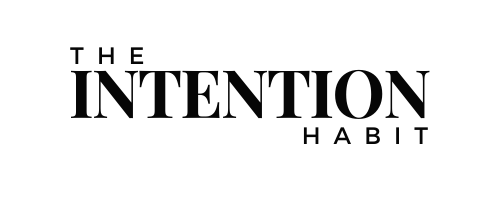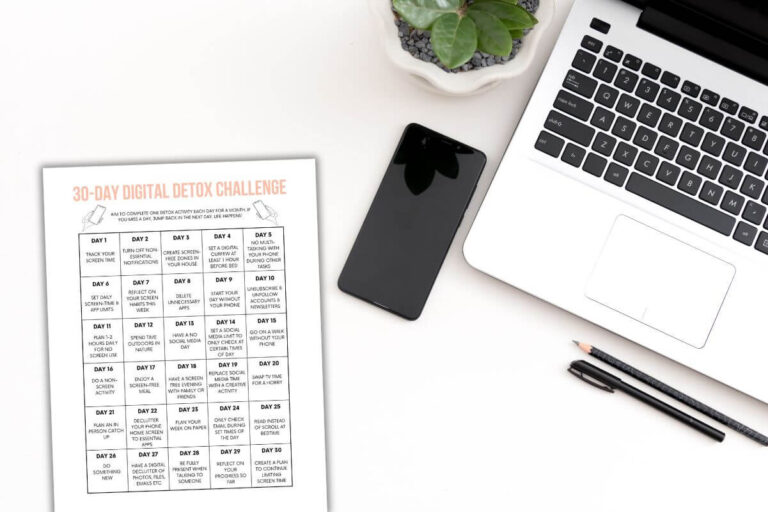25 Weekly Reflection Questions To Prepare For A Great Week
Life is hectic, and it’s easy to get lost or feel overwhelmed by the chaos. But reflection is the key to personal growth and to calm some of the busyness in your brain. These weekly reflection questions are the perfect way to prepare for the week ahead, by looking back at the week that was and setting your intentions for the new week.
A weekly reflection habit can be done as part of a Sunday night reset or as a way to start your Monday morning, to prepare for a productive and organised week.
In this guide, you will find 25 weekly reflection questions to help you set your intentions for the week ahead.
The Role Of Reflection In Personal Growth
Reflection is the process of thinking carefully and critically about your experiences, feelings, actions, and goals. It helps us to:
- Gain clarity about your thoughts, emotions, and behaviours
- Identify patterns and trends in your life
- Assess your progress towards your goals
- Recognise your strengths and weaknesses
- Be intentional with your time
- Develop new perspectives
- Make better decisions
- Enhance your emotional intelligence
- Improve your relationships with others
Reflection is a powerful tool for personal growth because it moves you from a reactive mode to a proactive mode.
Instead of just going through the motions of life, you become more intentional, purposeful, and mindful.
You take ownership of your life and your choices, and you create a vision for your future – or in this case, you set yourself up for a great week!
How to Incorporate Weekly Reflection Questions into Your Routine
Doing a weekly review is simple, but it requires discipline and commitment. You may like to have a specific physical notebook or digital notepad you use for your reflection process. This allows you to go back and review past entries too, keeping everything in one place.
Here are the steps for using the self reflection questions:
- Set aside time every Sunday evening or Monday morning for reflection – Even if this is just a 5 to 10-minute exercise you incorporate into your weekly routine, you will find it beneficial. It doesn’t need to be a long, drawn-out process!
- Choose a quiet space where you can focus uninterrupted – Turn off your phone notifications to give you focused quiet time.
- Review your calendar, journal entries, to-do lists, and other notes from the past week and take notes or journal your reflections.
- Answer the weekly reflection questions to help you gain clarity – This doesn’t mean you need to answer all 25 questions every single week. Just use the ones that make sense to you!
- Use a notebook, planner or calendar to create your action plan for the week ahead
25 Weekly Reflection Questions To Ask Yourself At The Start Of A New Week
Now, let’s get to the heart of the matter. Here are 25 weekly self-reflection questions to help you prepare for a new week
Answering all 25 of these questions may seem daunting, but don’t feel like you have to answer them all each week. Pick a few that resonate with you the most, or rotate which ones you focus on each week. The important thing is to take the time to reflect and plan.
The following questions include a variety of questions that reflect on the previous week, personal life, your time management, goal setting and progress and your preparation for the new week.
1. Who or what was I grateful for this week?
Reflecting on what and who you are grateful for can help shift your mindset towards positivity and gratitude, setting the tone for a better week ahead.
2. What was the most valuable lesson I learned?
Taking the time to reflect on what you learned can help reinforce the knowledge and make it easier to apply in future situations. Your week may not have come with any obvious lessons and that’s okay. Not every week will have a huge stand-out moment!
3. What did I accomplish this week?
Take time to celebrate your achievements, big or small. This will not only boost your confidence but also remind you of how much you are capable of.
This is your chance to review last week’s plan and see how much of what you wanted to get done actually got done.
This exercise might not have any huge implications in the first week, but you may soon start to see a pattern of certain tasks that you always seem to avoid. It might also reveal how realistic your plans are if you felt like you worked really hard and still left several projects unfinished.
4. What could I have done better?
Be honest with yourself and identify areas where you can improve. This is not meant to be a self-criticism session, but rather an opportunity for growth.
5. What challenges did I face last week?
Take note of any obstacles or challenges that you encountered during the week. This will help you prepare for similar situations in the future and come up with strategies to overcome them.
Are there currently external factors affecting your life that may have contributed to any challenges you faced? Being aware of these can help you find ways to mitigate their impact in the future.
6. What was my biggest achievement last week?
Celebrate your wins and accomplishments, no matter how big or small. This can boost your confidence and motivate you for the week ahead.
This can be a really empowering way of reminding ourselves that we did move forward towards a bigger goal or achieve something important, even if the week as a whole didn’t feel as successful as some others.
7. What moment was I most proud of?
Identify specific moments where you felt proud of yourself. This could be completing a challenging task, overcoming a fear or obstacle, or simply showing kindness to someone else. It doesn’t need to be life-changing to be worth celebrating!
8. What did I learn?
Take some time to think about all the new things you learned during the week. Whether it was a new skill, information about a topic, or even something about yourself, reflecting on these learnings can help solidify them in your mind and apply them moving forward.
9. What can I improve upon next week?
Be honest with yourself and identify areas where you can improve. This could be in your work, relationships, self-care, or any other aspect of your life.
Setting small goals for improvement each week can lead to big changes over time and this can be anything from saying no to things that aren’t serving us or going to bed earlier to wake up feeling more refreshed.
10. How did I move towards my long-term goals?
Consider the actions you took during the week that align with your long-term goals.
This could be reading a personal development book, networking, or working on a passion project. Even if it was just one small step, such as adding $50 to your travel savings fund, acknowledge and celebrate it as progress towards your bigger aspirations.
This is also a great opportunity to make adjustments if you feel that you did not move towards your goal in the past week. Perhaps you are out of alignment with your intentions and they need further review.
11. How did I take care of my mental health?
It’s important to check in with yourself and assess how you are feeling mentally. Did you struggle with anxiety or feeling down? Did you take breaks when needed? Were you especially emotional or tired?
Recognising these aspects of your mental health can help you identify any patterns or triggers that may need attention in the future. Always seek support if needed.
12. How did I practice self-care?
Self-care is essential for maintaining our physical, emotional, and mental well-being. Reflect on how you took care of yourself during the week. Did you take time to relax, exercise, or do hobbies that bring you joy?
If not, make a plan to incorporate more self-care practices and self-love into your routine. This can include things like journaling, meditating, or treating yourself to something special.
13. How did I nurture my physical health?
Our physical health is often overlooked in the hustle and bustle of daily life. Take a moment to think about how you nourished your body during the week. Did you eat well, stay hydrated, and get enough sleep?
If not, consider making small changes to improve your physical health. This could be cooking more meals at home, drinking more water, or creating healthy habits to move more each week.
14. Did I step out of my comfort zone? If so, how?
Stepping out of our comfort zones can be scary, but it’s often necessary for growth and progress. Did you challenge yourself in any way during the week? Maybe you tried a new food or took on a new project at work.
Reflect on how stepping out of your comfort zone made you feel and if it was ultimately beneficial. Remember, even small steps outside our comfort zone can lead to great personal growth.
15. How did I contribute to my personal relationships?
Our relationships with others are important for our overall well-being. Did you make time for your friends and family this week? Did you show them love, support, and appreciation?
If not, consider reaching out and making plans to connect with loved ones. Nurturing these relationships can bring joy and fulfilment into your life.
This may look like a weekly date night with your husband and making time for intimacy or it might be creating a habit of playing with your kids for 30 minutes every single day. How this looks will depend on what your priorities are right now for your personal relationships.
16. What inspired me this week?
Think about what motivated or inspired you during the week. It could be a quote, a conversation with someone, a new idea or project, a podcast episode or audiobook, or simply spending time in nature.
Keep a record of these moments to refer back to during times when you may need some extra motivation.
17. Did I set boundaries to protect my time and well-being? If not, how can I improve this?
Setting boundaries is crucial for maintaining a healthy work-life balance and protecting our mental and emotional well-being. Did you find yourself constantly saying yes to things that didn’t align with your priorities or values?
Take some time to reflect on how this affected your overall well-being and consider setting boundaries in the future to protect your time and energy.
This could mean learning to say no to certain commitments or delegating tasks to others.
18. What am I most excited about for the week ahead?
Looking ahead to the coming week, what are you most looking forward to? It could be a work project, an upcoming event, or simply spending time with loved ones.
Keeping excitement and anticipation for the future can help us maintain a positive attitude and outlook on life.
I ask myself this question every morning with a daily phone reminder to get me in a grateful mindset right at the beginning of each new day.
19. How can I nurture my relationships this week?
Take some time to think about how you can nurture your relationships this week. Is there someone in your life who could use a kind gesture or a listening ear? Maybe you can plan a special outing or event with a friend or family member.
Remember, relationships are like plants – they require regular care and attention to thrive. By showing love and appreciation to those around us, we can strengthen our connections and bring more joy into our lives.
20. What will I do for self-care?
Self-care is essential for our physical, mental and emotional well-being. Take a moment to consider some really specific ways you can give yourself some care this week.
It could be something as simple as taking a relaxing bath on Tuesday night or going for a walk in nature during your lunch break.
21. What is my top priority for the week ahead?
Setting a clear priority for the week can help us stay focused and productive. Take some time to review your goals and tasks, and choose one thing that you will focus on above all else.
By having a clear goal in mind, we can make sure our actions align with our priorities and move us closer towards our desired outcomes.
This also means you can have action steps to increase your chances of goal achievement, instead of us winging it with no real plan in mind. Set your top priority and make it a non-negotiable for the week ahead.
22. How will I nourish my body?
Our bodies are our temples, and it’s important to nourish them with healthy food choices. Take some time to plan out your meals for the week, ensuring that you are getting a good balance of nutrients.
Additionally, think about incorporating some physical activity into your routine – whether it’s going to the gym, taking a yoga class or simply going for a walk.
23. Are there any roadblocks that might get in your way?
It’s important to anticipate any potential roadblocks that may arise in the week ahead. This could be a busy schedule, unexpected challenges or personal struggles.
By being aware of these potential obstacles, we can come up with strategies to overcome them and keep moving forward towards our goals. Remember, setbacks are often temporary and can provide valuable lessons for growth and improvement.
Some weeks we won’t achieve all that much and surviving rather than thriving is okay!
24. Is your plan for the week realistic and achievable?
It’s important to set realistic and achievable goals for the week ahead. This means taking into account our current schedule, responsibilities and energy levels.
If we set unrealistic expectations, we may end up feeling overwhelmed and disappointed in ourselves. By setting manageable goals, we can feel a sense of accomplishment as we tick them off throughout the week.
This is your chance to review your calendar or planner and see if you actually have the time you need to get these things done.
I use a project management tool Asana for managing my work tasks and sometimes this means being honest with myself that I won’t get all those planned tasks done and moving some items to a later date.
25. What can I do to stay motivated throughout the week?
Motivation is key in achieving our goals, especially when faced with challenges and setbacks. Think about what motivates you personally – is it visualizing your end goal, celebrating small wins or having an accountability partner?
Use affirmations that help you stay focused on goals, or use a habit tracker for a visual reminder of good habits you are trying to achieve.
Find ways to incorporate these motivators into your daily routine and remind yourself of them when you’re feeling demotivated.
Reflection is a powerful tool for personal growth. Making it a weekly habit can help you stay grounded, focused, and purposeful. By answering a few weekly reflection questions at the end of the week or the start of the new week, you’ll gain clarity about your thoughts, values, and goals, assess your progress, learn from your experiences, and plan for the future.
Remember, reflection is not just about looking back, it’s about moving forward with intention and awareness.
Further reading:









